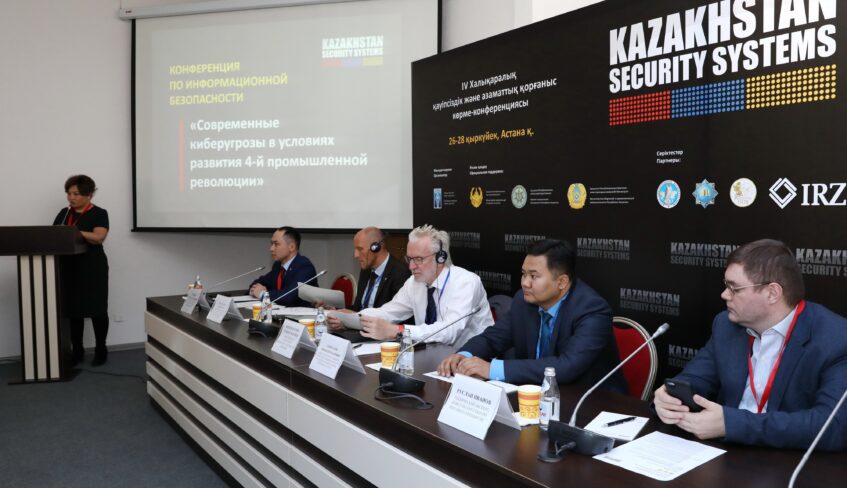The international scientific-practical conference “Modern cyber threats in the development of the 4th industrial revolution”, organized by the Law Enforcement Academy with the support of foreign partners, the German Legal Cooperation Fund “IRZ” and Astana-Expo KS, has completed.
The forum was attended by representatives of law enforcement and authorized state bodies, the scientific community, non-governmental organizations of Kazakhstan, near and far abroad, international and national experts.
As noted at the meeting, cybercrime today has become one of the global threats to national and international security. For example, over the past seven years, the number of recorded Internet crimes in Kazakhstan has increased by almost 40 times.
During the conference, a wide range of topical problems of ensuring information security and the development of an adequate system for combating crime in the field of high technologies were discussed.
In particular, such important topics were raised as technologies and means of ensuring cyber security, prevention and suppression of cybercrimes, risks and threats in the field of virtual money, laundering of criminal proceeds using information technology. The issues of ensuring information security of state and law enforcement agencies, the use of modern computer attack prevention systems were considered.
As noted by the speakers, in order to effectively combat cybercrime, it is important to strengthen interagency and interstate cooperation, and strengthen public-private partnerships.
In this regard, particular emphasis is placed on the study and borrowing of international best practices. Experts from Germany, Russia and Japan shared their experience in preventing, detecting and investigating cybercrimes.
An interested and constructive discussion of the agenda allowed the meeting participants to find common ground, identify promising areas of cooperation in order to create effective mechanisms to counter Internet crime, protect society and the state from potential threats.


